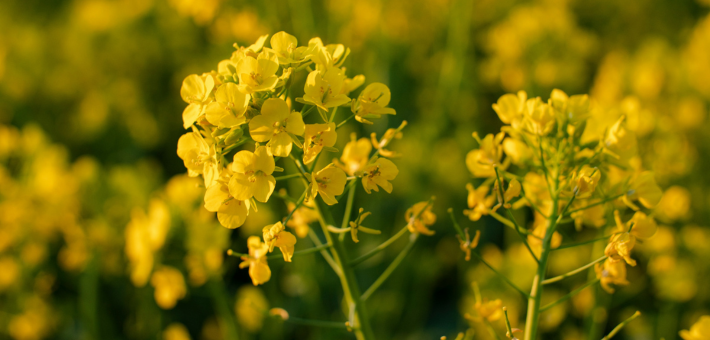Commentary on Ezekiel 17:22-24
The message of the book of Ezekiel is thoroughly informed by its initial vision. Words are not the things they describe; they are less of what they try to explain. The vision of the Lord is chaotic. It is a metaphor for God’s presence, telling what is indescribable. The Glory of the Lord dominates everything the prophet sees and experiences. The rest of the book will paint vivid images, using symbols, allegories, and parables to convey spiritual truths. One of the symbols is the cedar tree, a metaphor for God’s promise and restoration.
Ezekiel 17 is set after one of the most troubling images Ezekiel uses to describe the people’s exile. It was a time when they grappled with loss and experienced the destruction of the city, the temple, and the monarchy. At the same time, it was the beginning of a longing for restoration, seeking hope during despair. Through the metaphor of the cedar, Ezekiel communicates God’s faithfulness to the ancient covenant and God’s intention to reestablish the community.
In the first sentence of the lectionary passage, the Lord announces taking a sprig from a lofty cedar. God then plants it on a high mountain, exalting it. God’s care for the tender shoot speaks about God’s ability to bring life amid devastation from the most unlikely places. Ezekiel 17:22 repeats the word “myself” twice to emphasize the care God provides to the tiny stem.
God takes the sprig of cedar from all the trees, whose imagery is significant in the Old Testament. This tree is a symbol of strength, resilience, and imposing stature. It serves as a reminder of God’s promise of restoration. Just as a tiny sprig can grow into a mighty and majestic cedar, the community can hope that salvation springs from desolation and misery.
The Hebrew rak means soft and delicate, as in Leah’s eyes (Genesis 29:17) and the heart of David in 2 Samuel 3:39. God plants not the woody stems. Those are tough and rigid and have to be cut down and punished. Cuttings from small and pliable sprigs represent the malleable people ready to be restored.
God promises that the tender shoot will become a “noble cedar,” providing shelter to every kind of bird. The poem emphasizes that birds and winged creatures can nest under its branches. This statement represents the inclusivity of God’s restoration. Surprisingly, in Ezekiel, with its emphasis on purity as a norm for inclusion in God’s people, the imagery of Ezekiel 17 suggests that God’s promise of restoration also extends to all nations; the majesty of the cedar and the shelter it offers invite all people to dwell under the protective branches of God’s grace. It suggests the universality of God’s love and care for creation.
The cedar provides more than shelter. God will cause it to “produce boughs and bear fruit” (verse 23). The abundance of new branches and food signifies the many blessings God bestows upon those who live in it. It is the material manifestation of God’s promises and a way to support life’s flourishing under divine care. The cedar tree is a holy, miraculous event of survival and renewal.
The newly nested people in the branches of the tree will not be consumed with anxious thoughts of devastation. Instead, people will flourish in a safe and nurturing place among the aromatic branches of the cedar. God’s grace is generative and life-giving to all the earth, echoing the ancestral promise of Genesis 12:3, in which all nations are blessed through the Abrahamic covenant.
Finally, “all the trees of the field” recognize God as Lord. God is the sovereign source of redemption and author of all that lives and dies. The final verse (17:24) focuses on the depiction of God as the divine power that gives and takes life, who builds up and tears down (echoing Jeremiah 1:10). God takes, sets, breaks off, plants, brings low, makes high, dries up, makes flourish, and accomplishes. God controls all the actions in this parable. The tree will grow and produce fruit, and the birds will nest and rest. Yet all actions are under divine activity, which carefully tends to the tree.
God has a plan for how to replant a people. The project begins with a simple, small, and tender sprig. It will eventually become a towering cedar. From something small, God moves to create something meaningful. The smallness of the twig hides the greatness of divine power to save and restore. In other words, God’s power shows up in the reversals and upheavals of life, in the circumstances that upend all our expectations and assumptions about power and prestige. In personal or collective despair, the cedar tree reminds us of God’s enduring love when we feel cut off from hope and restoration.
The universality of bird life is striking in this passage. The gospel reading from Mark 4 picks up this theme. The point in the gospel is the size of the tree growing from such a tiny seed. But in Ezekiel, the cedar reminds Israel of her vocation—to be a light to the nations, as in the book of Isaiah—and that goes back to Abraham. Israel is to be blessed and to be a blessing because God’s kingdom is for all. The sprig symbolizes God’s power to recreate, and it is a statement that God indeed will do so with the people who suffered exile.
The more people are ready for it, the better. Ezekiel’s community was in a place of suffering. So this passage seems appropriate to consider the hope that comes from a God who cares for little shoots and makes them majestic cedars. Hope and renewal start from small and insignificant stems; in the hands of the divine, they become a living place that nurtures and protects.



June 16, 2024